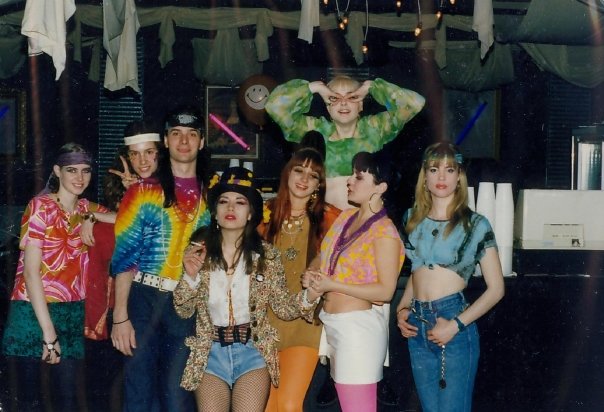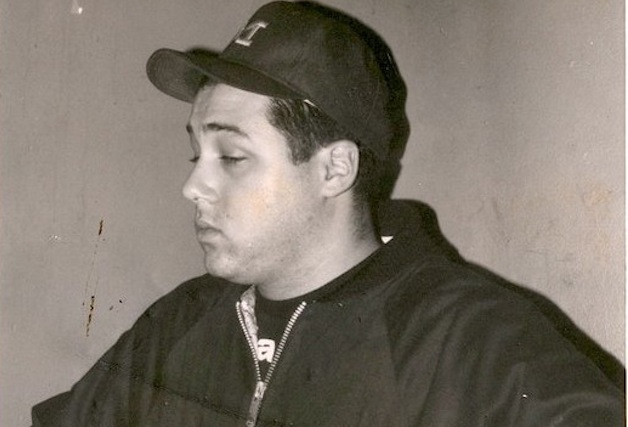The Empire crew is decked out and ready to dig Psychedelic Wednesdays. Photo courtesy of Michelle Fabry.
Article originally published October 8, 2013 by The Grid online (thegridto.com).
This edition of Denise Benson’s Toronto-nightlife history series tells the story of how a local gay-community landmark was reborn in the late ’80s as a cutting-edge alternative club where you could dance to acid-rock and acid-house alike.
BY: DENISE BENSON
Club: Empire Dancebar, 488A Yonge
Years in operation: 1988-1992
History: In a city where history is so often obliterated or obscured to make way for the new, there’s something comforting about the old clock tower still found atop 484-488 Yonge. It was built in 1870, as part of the original Toronto Fire Hall No. 3, which remained at the address until its move around the corner, to Grosvenor Street, in 1929.
After the hall closed on Yonge, that building was occupied by retail businesses until the St. Charles Tavern took root in 1951. By the early 1960s, the St. Charles was known to be a gay bar. It, along with the nearby Parkside Tavern, became a significant gathering spot that would help hasten the development of queer social life anchored around Yonge during the 1970s. The St. Charles, while also remembered as the focus of homophobic attacks (especially at Halloween), remains one of this city’s best-known gay bars of all time. A number of discos opened above it over the years, with the most popular being The Maygay and Charly’s. A club called Y-Not also operated upstairs in the mid 1980s. By 1987, following years of neglect, the St. Charles was a shadow of its former self and closed.
A year later, the upper level would re-open as Empire Dancebar, a versatile venue dreamed up by friends Dave Craig and Michael Marier. As a teen, Craig had been an MC and DJ in TKO Sound Crew, a popular group that was eventually inducted into the Stylus Awards Hall of Fame in 2008. Craig left TKO to join a new crew, Romantic Sounds, which was started by Marier. Together, they produced events including The House, a weekly underground jam held at the Party Centre at Church and Shuter. As their crowds increased each week, so too did the building manager’s rent demands.
“Eventually Mike’s dad, Bob, suggested that we should get our own space, and he funded the creation of Empire with a quarter-of-a-million dollar investment,” says Craig.



